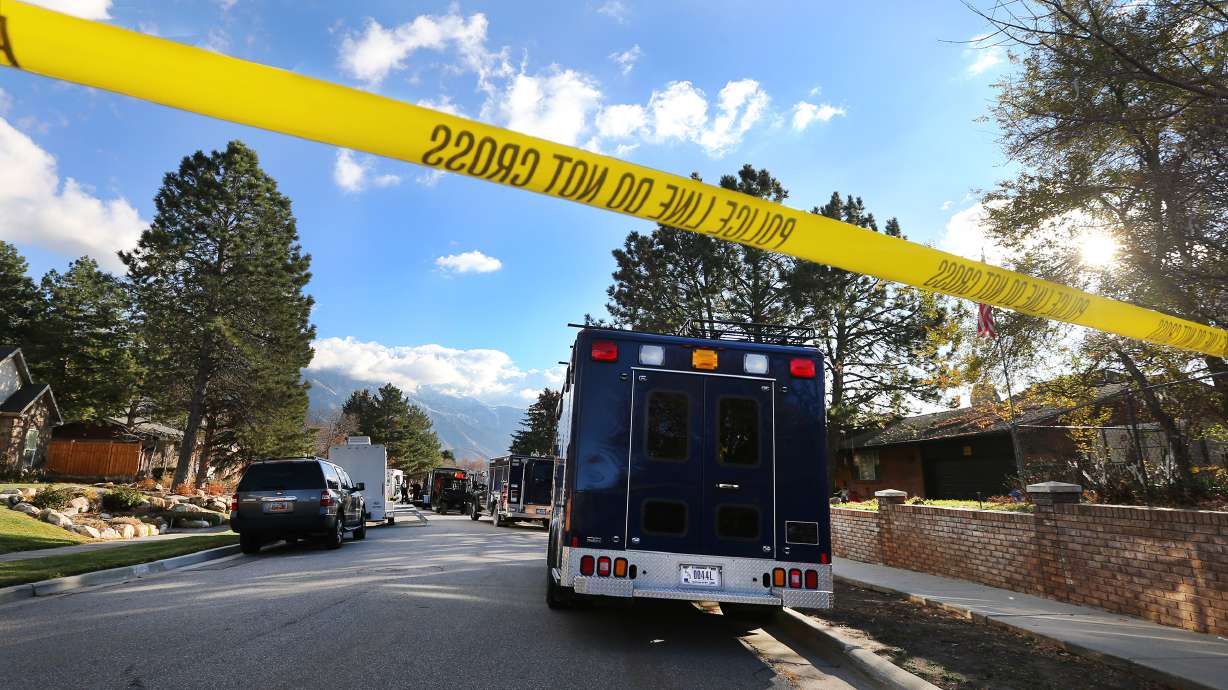Estimated read time: 2-3 minutes
This archived news story is available only for your personal, non-commercial use. Information in the story may be outdated or superseded by additional information. Reading or replaying the story in its archived form does not constitute a republication of the story.
SALT LAKE CITY — A Utah man accused of helping run a multimillion-dollar opioid-drug ring based out of a Cottonwood Heights basement is downplaying his role as he asks to be released from jail before trial.
Lawyers for Drew Wilson Crandall, 31, said in court documents Wednesday that he made less than $65,000 for the two years of work he did for a longtime friend, alleged ringleader Aaron Shamo, 27.
But prosecutors have said Crandall was Shamo's partner in selling the powerful opioid fentanyl disguised as prescription drug pills on the dark web — an area of the internet often used for illegal activity. They said the operation had thousands of customers across the U.S. at one point and raked in $2.8 million in less than a year.
A judge will consider whether to release Crandall at a hearing set for Nov. 20.
Defense attorneys have said the pair met as teenagers and bonded over their love of longboarding and status as nonpracticing Mormons in devout families.
Crandall was shy and awkward while Shamo was outgoing and charismatic, always looking for a million-dollar business idea, defense attorneys said.
Crandall studied mechanical engineering but received low grades in college and struggled with depression, according to court documents.
He stayed close to Shamo until a girlfriend he met in 2015 convinced him to pull away from the friendship. The couple took a trip to southeast Asia and New Zealand, living frugally and working jobs to support themselves while traveling, defense attorneys said.
Crandall and his girlfriend were arrested when they landed in Hawaii, where they planned to get married. Their families, some of who made sacrifices to get there, were left waiting, his lawyers said.
Defense attorneys are asking for Crandall to be released ahead of trial, pointing to his lack of criminal history and strong family support.
Related:
But prosecutors say he should stay behind bars, and the planned marriage is among the reasons why. They say his girlfriend is a witness, and if he is released and they get married she could claim spousal privilege, according to court documents.
Authorities say Crandall was deeply involved in the scheme, providing online customer service while he was traveling, teaching people how to package drugs to ship to customers disguised as coffee and helping bring in people to replace him when he left the country.
Crandall has been indicted on three counts, and faces a minimum of 10 years in prison if convicted on one, conspiracy to distribute fentanyl.
In addition to Shamo, four other people are also charged with helping package the drugs and send them to customers, often through the U.S. Postal Service.










